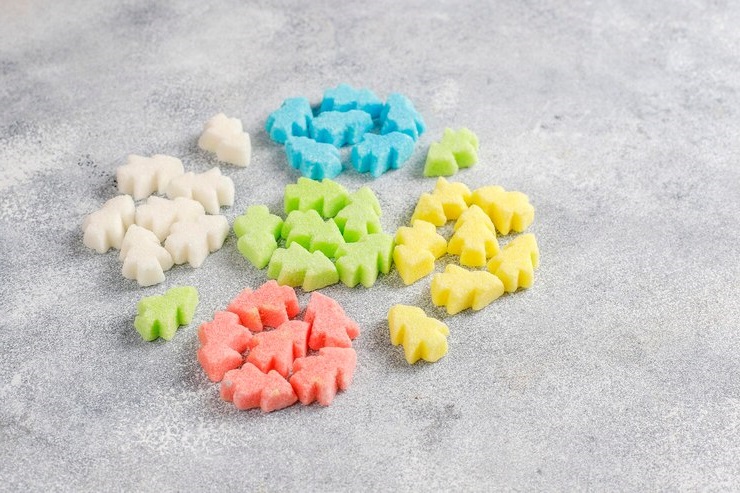
Have you ever wondered if can coconut oil really remineralize teeth? It’s a question that has intrigued many people, especially those looking for natural alternatives to improve their dental health. Coconut oil has gained popularity for its various health benefits, but can it actually help strengthen your teeth? Let’s dive into this fascinating topic and explore how coconut oil might play a role in maintaining and improving your dental health.
Understanding Tooth Remineralization
Tooth remineralization is the process by which minerals are redeposited in the enamel of a tooth after being removed by acids. When you eat or drink, bacteria in your mouth produce acids that can demineralize, or wear away, the enamel on your teeth. Remineralization helps restore these minerals and strengthen the enamel, making it more resistant to decay.
The Importance of Remineralization
Maintaining strong tooth enamel is crucial for preventing cavities and tooth decay. Can coconut oil help in this process? To understand this, it’s important to look at how remineralization works. Your saliva plays a key role by providing calcium and phosphate that help repair enamel. Fluoride, commonly found in toothpaste, also aids in remineralization by attracting these minerals to the enamel.
The Role of Coconut Oil in Oral Health
Coconut oil has been touted for its antibacterial and anti-inflammatory properties, which can contribute to better oral health. But can coconut oil actually remineralize teeth? Some proponents of natural health believe that it can help by reducing harmful bacteria in the mouth and providing a protective barrier for the enamel.
Oil Pulling
One popular method that uses coconut oil for oral health is oil pulling. This ancient practice involves swishing oil in your mouth for about 15-20 minutes and then spitting it out. The idea is that the oil “pulls” out toxins and bacteria, improving oral health overall.
How Oil Pulling Works
Oil pulling is believed to reduce the amount of harmful bacteria in your mouth, which in turn can reduce plaque and gingivitis. The process involves taking a tablespoon of coconut oil and swishing it around your mouth, making sure to pull it through your teeth. After 15-20 minutes, you spit out the oil and rinse your mouth with water.
Benefits of Oil Pulling
- Reduces Plaque: By removing bacteria that cause plaque buildup.
- Freshens Breath: Helps eliminate the bacteria responsible for bad breath.
- Whitens Teeth: Some users report that oil pulling helps remove stains from teeth.
Can coconut oil used in oil pulling actually remineralize teeth? While there is limited scientific evidence to support this claim directly, the reduction in harmful bacteria and plaque can create a healthier environment in your mouth, which is conducive to remineralization.
Antibacterial Properties
Coconut oil contains lauric acid, which has been shown to kill harmful bacteria in the mouth. By reducing the number of bacteria, coconut oil can help lower the risk of tooth decay and gum disease. Can coconut oil‘s antibacterial properties contribute to remineralize teeth? Indirectly, yes, because fewer bacteria mean less acid production, which helps protect enamel from demineralization.
Scientific Evidence and Studies
There have been several studies examining the effects of coconut oil on oral health, though more research is needed specifically on its ability to remineralize teeth.
Studies on Coconut Oil and Oral Health
- Antibacterial Effects: A study published in the Journal of Contemporary Dental Practice found that coconut oil was effective in reducing Streptococcus mutans, a bacteria that contributes to tooth decay.
- Oil Pulling Benefits: Research in the Nigerian Medical Journal suggested that oil pulling with coconut oil could reduce plaque and gingivitis, similar to the effects of chlorhexidine mouthwash.
- Enamel Protection: While direct evidence on remineralization is scarce, the reduction in harmful bacteria and plaque can indirectly support the process of enamel remineralization by creating a healthier oral environment.
Limitations of Current Research
Despite these promising findings, it’s important to note that most studies focus on the antibacterial properties of coconut oil rather than its ability to remineralize teeth directly. More research is needed to conclusively determine whether coconut oil can promote remineralization.
How to Use Coconut Oil for Oral Health
If you’re interested in using coconut oil to improve your oral health, there are several ways to incorporate it into your routine.
Oil Pulling
As mentioned earlier, oil pulling is a popular method. Here’s a step-by-step guide to doing it:
- Measure: Take about one tablespoon of coconut oil.
- Swish: Swish the oil in your mouth for 15-20 minutes. Make sure not to swallow it.
- Spit: Spit the oil into a trash can (not the sink, as it can clog drains).
- Rinse: Rinse your mouth with warm water and brush your teeth as usual.
Adding Coconut Oil to Toothpaste
You can also add a small amount of coconut oil to your regular toothpaste to enhance its antibacterial properties. Simply mix a little coconut oil with your toothpaste before brushing.
Homemade Toothpaste
For those who prefer a DIY approach, you can make your own toothpaste using coconut oil, baking soda, and a few drops of essential oil for flavor. This can provide a natural alternative to commercial toothpaste.
Recipe for Homemade Coconut Oil Toothpaste
- Ingredients:
- 2 tablespoons of coconut oil
- 2 tablespoons of baking soda
- 10-20 drops of peppermint essential oil (or your preferred flavor)
- Instructions:
- Mix all ingredients in a small bowl until well combined.
- Store in a small jar with a lid.
- Use a small amount to brush your teeth as you would with regular toothpaste.
Comparing Coconut Oil with Other Remineralizing Agents
While coconut oil offers several benefits for oral health, how does it compare to other commonly used remineralizing agents?
Fluoride
Fluoride is one of the most well-known agents for remineralizing teeth. It’s often found in toothpaste and drinking water. Fluoride helps to strengthen tooth enamel and makes it more resistant to decay. Can coconut oil replace fluoride? While coconut oil can help reduce bacteria, it does not have the same remineralizing properties as fluoride.
Hydroxyapatite
Hydroxyapatite is a naturally occurring mineral in teeth and bones. It’s used in some toothpastes to help repair enamel. Studies have shown that hydroxyapatite can be effective in remineralizing teeth and reducing sensitivity. Can coconut oil match the remineralizing power of hydroxyapatite? Not directly, but it can complement its effects by maintaining a healthier oral environment.
Xylitol
Xylitol is a sugar alcohol that has been shown to reduce the risk of cavities. It’s often found in sugar-free gum and dental products. Xylitol can help reduce the number of bacteria in the mouth and promote saliva production. Can coconut oil work alongside xylitol to remineralize teeth? Yes, using both can provide a synergistic effect for better oral health.
Practical Tips for Using Coconut Oil
Here are some practical tips to help you get the most out of coconut oil for your oral health:
Consistency is Key
For any oral health regimen to be effective, consistency is crucial. Make sure to use coconut oil regularly, whether it’s through oil pulling or adding it to your toothpaste.
Combine with Good Oral Hygiene Practices
Using coconut oil should not replace regular brushing and flossing. Instead, it should complement these practices. Brush your teeth twice a day, floss daily, and use coconut oil as an additional measure to improve your oral health.
Monitor Your Progress
Pay attention to any changes in your oral health. If you notice improvements, such as reduced plaque or fresher breath, it can be a sign that coconut oil is benefiting your oral health. However, if you experience any negative effects, stop using it and consult your dentist.
Conclusion
So, can coconut oil really remineralize teeth? While there is no definitive evidence that coconut oil can directly remineralize teeth, it can play a supportive role in maintaining good oral health. Its antibacterial properties, when used through practices like oil pulling, can reduce harmful bacteria and plaque, creating a healthier environment for remineralization. Combined with good oral hygiene practices and a balanced diet, coconut oil can be a valuable addition to your oral care routine. Remember, for the best results, consistency and proper oral hygiene are key.





